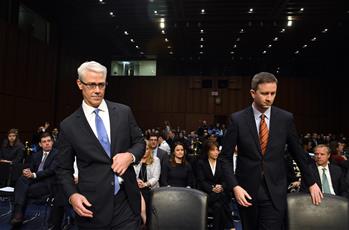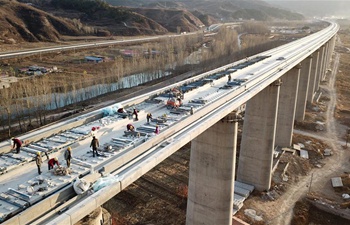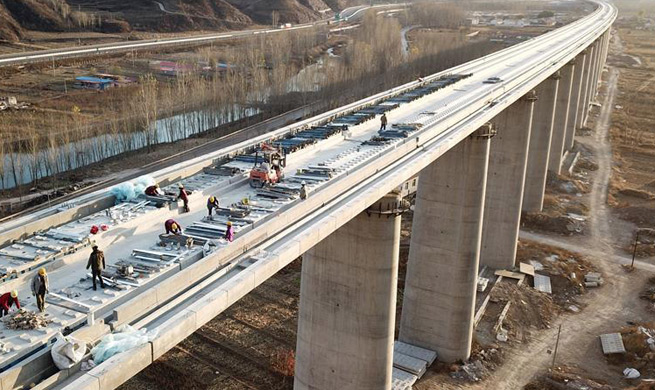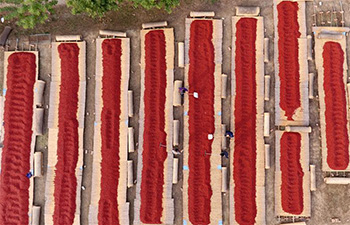BEIJING, Nov. 2 (Xinhua) -- A series of leading Japanese manufacturers have been mired in recent quality scandals, damaging the once-revered "Made in Japan" reputation and reflecting a lack of supervision on a national level.
Subaru Corp. is the latest manufacturer to come under fire. The company said Monday that it would move to recall around 255,000 vehicles next week after it was revealed that final vehicle inspections had been carried out by uncertified staff.
The scandal at Subaru comes on the heels of revelations that Nissan Motor Co., Japan's second-largest automaker, has been involved in similar practices. The improper inspections led to the automaker issuing a domestic recall of over 1 million cars sold in Japan.
The scope of the scandal is far beyond the car industry. Kobe Steel Ltd., a longtime bastion of Japan's manufacturing sector, recently admitted to falsifying inspection data on a number of its products, including aluminum, copper, steel powder and special steel products.
More than 500 companies ranging from automakers and airplane manufacturers, to defense equipment and Shinkansen bullet train makers, have been affected by the steel maker's misconduct, including overseas companies such as General Motors Co., Ford Motor Co., Airbus and Boeing Co.
Damage to Japan's manufacturing industry has already been shown in real figures. Auto sales in the country last month fell 1.7 percent from a year earlier, "dragged down" by Nissan's inspection scandal, Kyodo news reported Wednesday.
Nissan suffered a 43 percent drop in total car sales following the revelation on improper inspection in late September, the report said.
An article from the Financial Times said Japan needs to recognize these incidents as the symptoms of a "hermetically sealed" industrial system that is "reaching its limits". The Japanese public broadcaster NHK also published an article this week titled "The 'Made in Japan' Crisis."
Such incidents have cast doubts over corporate governance in the manufacturing industry in Japan, and seriously damaged the country's once stellar reputation for precision manufacturing, industry experts said.
Nissan CEO Hiroto Saikawa has said the automaker's training system for certifying vehicle inspection staff had not changed for 20 years, with sources close to the matter stating that, in violation of government requirements, final inspections had been routinely conducted by uncertified technicians for two decades.
"It tends to be the case that both in terms of corporate culture and the flow of communication at automakers in Japan, senior management and the on-site production management teams drift apart," Jin Jianmin, a senior fellow at Fujitsu Research Institute in Tokyo, told Xinhua.
Even Saikawa himself admitted: "The communication gap between management and shop floors is big, bigger than what we imagined."
Jin further suggested that while the corporation governance mode in Japan emphasizes trust on human beings, the necessary supervision and all-important checks and balances can, indeed, be sorely lacking.
Earlier scandals have also included rigged fuel economy tests rocking Suzuki Motor Corp. last year and almost identical improprieties carried out by Mitsubishi Motors Corp., as well as the catastrophic fiasco caused by Takata Corp.
"The scandals are shaking trust in Japanese manufacturing, which is often praised for its quality and safety. We will need to figure out how to rebuild safety and quality control systems," Japanese Transport Minister Keiichi Ishii was quoted by NHK as saying.
The minister said such negligence of compliance is undermining the nation's regulatory system and the government has since stepped up its overseeing of a number of manufacturers.


















